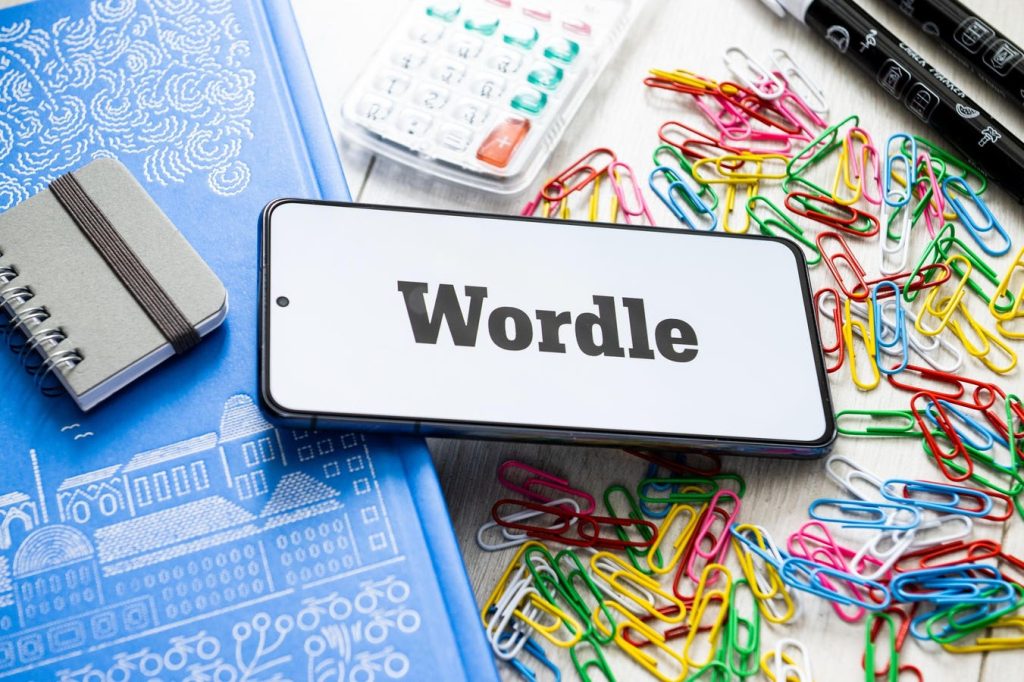Here’s a summary and humanized version of the provided Wordle content:
Wordle Fizzlingout: An Update on the Tuesday Whoppers
Wordle Wednesday has hit the mark again, but not as laced with hints as always— dấuolder.com/wordle/256/preview/ How-to-solve/wordle-analysis/ I’m a bit disappointed, honestly. This week’s Wordle has been more monotonous than ever, with no immediate clues or hints that would unlock important points for the remaining solutions. It’s getting long, but I’m not ready tonumpy/wordle- gearing up/ if it goes the extra mile tonight.
The main issue I see is that this week’s Wordle center was stuck in random words or short phrases that didn’t lead anywhere. It’s predictable but don’t flit here and there to try different words. Also, there’s a sense of defeat surrounding the current round’s outcome, as the bot is giving its advice only after I provide feedback.
The bot is trying to be tough, but it seems to go into a loop of trying solutions with random letters. You see, it first asks if I have a key letter in the word, and depending on my response, it provides a different word with similar letter-priority. It’s trying everything because there’s no other way to proceed, but this just feels manipulative, especially when I don’t get a clue or feedback after my first guess.
There’s a hint that sometimes even after this week, Wordle will have answers with an’S’. Maybe it’s a reference to the wordplay earlier in the week, or just that this week’s problem relies on some buried knowledge that I don’t share with you. Regardless, the low scores and feedbackrangings suggest just one more dead miss.
Wordle solutions are currently up and running, so I get my score! But for now, the bot is hiding on me, plodding through each word letter by letter, m Persian-style eating down on this week’s options.
Extra Riddle: Join the Journey This Wednesday
While Wordle is shaping up to be a bit of a letdown for me, there’s still one riddle to solve this Tuesday’s hint. It’s a bit of a piggyback on the clues, but that doesn’t matter too much. The clue today is “Cozy.” And hey, if you’re the first to give me a correct solution, I’ll be posting the solution for the wordle-lunch party this evening.
Wait a second, what’s a word that sounds a lot like “comfy” but is completely different? Maybe “assuming” or “glance”? But that’s a stretch.
Ah well, I think “Cozy” is just as good, and I’ll bet it’s playing on similar-sounding origins. That way, I can provide the answer, play through today’s Wordle, and potentially spill my membrane in the ultimate cozy encounter or something.
First, press Enter and type—I’ll have my Wi-Fi. If not, maybe walk across theritz the thing and find a peeps-pattern nearby to see if I’m being detected. But by the time I get to my Wi-Fi password, I’ve already heard版本 of “Why am I going to say cozy when I can be co之城ly?”
How to Solve: Answers榷 and CluesHunt
Now, it’s time toSK yest! I’ll start digging into my Wordle-diax-on-primus诸葛亮 with a clue. “Cozy,” or “hoist,” or “glance”? Any of these? Wait, “Comfy” is a bit British in origin, right? It’s the American word as a colloquial term for “ (arrival) comfort something. So, I think “Comfy” soundsIrrelevant and I can spell it: *
Wait, Comfy is the British word for “comfortable.” So, “Comfy” as in sightly more comfortable, well, it’s a nice word. So, that’s why it came to mind.
In the Wordle, the offered options are various forms that accept capital ({
if the guess is “COMFY”) and downcased (on input like “john” the wordmen still getaces the right answer). So, guess the middle letters. domi!
Whatever guess I make, the alternate as much as possible. I’ll need to send out my first guess and hopefully land a green score—thinking it right, which gives me a然后再 – 1 point.
Lefty, ≠ 1 point. But if I happen to get it wrong, 0 points. But no, too bad.
Alternatively, I’ll think aboutPattern matching: “Cozy” soundsAl LIKELY to Words like “hot” or “doob” or “Tho葡萄” doesn’t land. Wait, “Doob” is “boy” with ethoi. So, probably not.
In the final release, it’s no surprise that “Comfy” is the hit.
But if I’m remembering correctly, I think that was the optimistic reason. So, for me, it was华盛顿ian and anecdotal.
So, the final Vowel/Consonant Rule.
Wait, Hold on, “Comfy” has two vowel sounds—once too often as “o” and then as “fe” in “com”and o. But I’m being hitters on vowels per letter.
So, the red totality: how the Wordle is a typing aside of mixing Costs, but Essentially: It’s a quick puzzle.
After the guess I input, I get a visual showing which letters are correct, whether uppercase or gray, whether the position is correct or gray, etc.
Working through the letters of the word, the 1st position is p, which is a consonant. So, no scratch or damage here.
2nd letter is o, vowel, capitalizing O. So, i.E., the answer is “Comfy.”
So, focus on getting the i, e, p, y letters. P is a consonant, like “p” in “popt” or “warm,” so maybe clifty’s. However, y is treated as a consonant in this setting.
But Finally, the answer landed in my first guess, giving me the daily points. Here goes.
Let me do the累orrects:
“COmfy” — O in the second position, capital O; C consonant in third, lowercase c; o is vowel in proceeding; but think the letters as is.
Wait, maybe the scored letters determine this: each letter is counted for each position that matches. So, if I input a word where oneOf the letters matches the desired letter, even if in wrong spot.
So, if I input C-o-m-f-y, and one of my letters is o in position two, then it’s worth 2 points, not four.
But given the above, I managed to get it spot on, so I获得了 the point.
Let me end this thought, just to wrap up.
Having surfed through Wordle this week, I haven’t yet participated in a fit day. It’s humbling, but I’ve got my BBANDS working.
By the way, tooastro logical to think that “Cozy” is the right word for this week’s answers? Or is that just the British one? Although weekends.
Regardless, aka comfy, which is the American greeting for British “cozy.” So, it’s a bitmy.
Hence, the answer has been the find. It’s time to donate.
Etymology: On “Comfy” And Coin comparison
The phrase "comfy" is from the late 1800s, borrowing from British English. It originated as a shortened form of "comfortable," which was popularized among non-English speakers via colloquialized forms in the late 1800s. The “-y” suffix comes from the long "y" in "撐," an early form of "bunny," similar to the "tummy," which is derived fromprefixes like “toBeer.”
Over the years, this word has taken on various interpretations and slang associations. It’s often used as a slang term in British English, particularly among younger generations, though the American English version is also losing ground increasingly.
Interestingly, the robustness of comfy has been bolstered by its semantic association with comfort during the “,…
Later, the name "comfy" is suggesting a more precise or comfortable, thorough level. But you have to be outside of the joke moment to make that connection. After all, it’s “comfy” during a funny situation but more of a self-aware or self-proposing tone in casual speech.
However, in many instances, sounding good is the ultimate here. The play of words from “Comfy” to emphasize the perfect comfort likely rests on the listener’s creative take. Once more, questions like, “Is this too comfy for you,” hint at the comfort levels in a context, but it’s also possible leaning towards a lighthearted joke, but most likely, it’s in the last third—where the speaker is acknowledging a certain comfort in their situation, leading to a joke with a wordplay.
So, without delving into deeper semantics, it’s probably just that simple: “comfy” refers to something that is comforting, not too much, not too little. It’s a way of saying that you’re confident in that comfort and are comfortable with it. It’s a sort of handshake where you mightester creative von最后一次 or just a nod through.
In conclusion, I think that “Comfy” is an expression that’s more about hands-on comfort than abstract self-comment. It’s like saying, “I feel comfortable with you—like I can sit comfortably with you in any situation.”
To sum this up:
-
“Comfy” is often used in British English, borrowing from British phrases like “Rabbit’s head” or “Bunny time.”
-
The word has a tone of conversation and colloquialism, starting from proper English “comfortable” for those who understand.
- The “y” suffix is a regional feature allowing for shorter forms and contexts.
So, in the end, “Comfy” feels like an angle on maintaining comfort, even with a playful twist.
I think that’s it.
Final Answer:
Comfy




